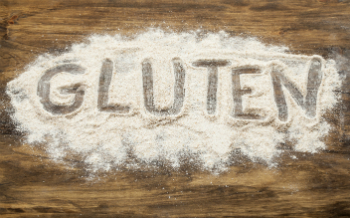Going gluten-free: why it’s not right for everyone

Gluten is a hot topic these days. From talk shows to blogs, there’s a glut of gluten-free dieting advice out there, and many people think that gluten is the source of all sorts of health woes, from bloating to indigestion to obesity. Lots of people are choosing gluten-free foods in an attempt to eat better or lose weight. But removing something as ubiquitous as gluten from your diet is not a simple task and it might even be harmful to your health. It’s even more of an issue for teens because many of them, depending on their age and weight, have not yet fully developed.
So what exactly is gluten?
It’s a protein found in grains, the most common of which are wheat, rye and barley. Gluten gives dough its elasticity and helps bread rise and keep its shape. Gluten is also found in other foods such as crackers, cookies, cereal, and even soups and salad dressings.
Food marketers have been quick to spot the gluten-free trend resulting in an ever-larger selection of gluten-free foods on the market. On closer inspection though, some of these foods are actually higher in calories and less nutritious than products which contain gluten.
Celiac disease: when gluten free is a necessity
There is one group of people who must follow a gluten-free diet, and that is people with celiac disease, a condition in which a person’s small intestine is irritated and damaged by gluten. In Canada, there are approximately 35,000 people—or 0.1 per cent of the population—who have been diagnosed with the disease. Contrary to what some people believe, celiac disease is not something you can diagnose yourself: it requires a blood test followed by a biopsy of the small intestine.
What’s more, if you’ve already stopped eating foods with gluten, the biopsy may actually come back negative—that is, you’ll show no sign of celiac disease even though you might have it. The Ordre professionnel des diététistes du Québec recommends that nobody should follow a gluten-free diet without first consulting a doctor who can diagnose celiac disease.
Avoid self-diagnosing, and consult your doctor
People who have an intolerance or sensitivity to gluten may experience some similar gastrointestinal symptoms to celiac disease such as bloating or discomfort, but their small intestine will not be damaged by eating gluten. They often report feeling better once they reduce or eliminate the gluten in their diet, however, removing all forms of wheat from their diet may result in significant iron or calcium deficiencies. If you think gluten might be a problem for you or anyone in your family, talk to your doctor first before making any changes to your diet.


